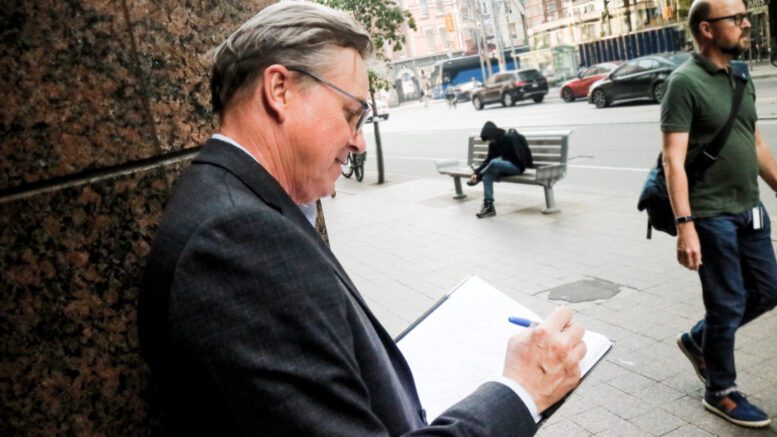With Toronto’s byelection for mayor a week away and 102 candidates on the ballot, one advocate for youth political engagement has some advice for the city’s voters: have a plan.
Future Majority Executive Director Amanda Munday is helping young voters in Toronto prepare to vote in the upcoming byelection. She said the barrier in this election isn’t so much apathy as it is organization.
“We don’t hear, ‘I’m just not going to vote,’” Munday said, “but what we’re hearing from people is more like, ‘Thanks for letting me know there’s an election happening.’”
Future Majority is an organization dedicated to providing a platform for young Canadians’ concerns to be voiced.
According to Munday, Toronto’s young adults have pleaded for improvements to issues like housing affordability, transit, mental health, and climate change. She said young adults make up a powerful voting bloc.
But the problem is, young people don’t currently vote enough. And neither do Torontonians, for that matter.
At the time of Toronto’s 2022 municipal election, voter turnout dropped to a record low 29 per cent of the approximately 1.89 million eligible voters. Voter participation decreased over the previous two elections as well, from 60 per cent (2014) to 41 per cent in 2018.
According to Statistics Canada, voter turnout in 2020 at the municipal election level (52.5) from people aged 18 to 30 was 20 per cent less than the provincial elections (52.5 per cent vs. 72.7 per cent).
Some of the reported reasons that age group didn’t vote included time conflicting work or school schedules, lack of interest in politics, or they weren’t informed on political issues.
Back to the polls
Following former mayor John Tory’s resignation, Toronto has a vacancy in the mayoral position and so voters will go to the polls on June 26.
Due to Tory’s departure, there is no incumbent candidate that is likely to be reinstated. “If someone is an incumbent, they’re almost certain to get re-elected,” said Nelson Wiseman, professor emeritus of political science at the University of Toronto.
And, there are 102 candidates running in the byelection, including a dog. The lack of involvement from an incumbent or known political parties makes voting much more difficult for young adults.
Through her conversations with some of the city’s youth, Munday said a lot of them told her they do not know an election is approaching, or they have complications with travel to polling stations and/or knowledge of how to vote.
She then helps them try to create voting plans, which are ways of organizing schedules to free up space to learn about candidates, locate reasonable poll destinations, and find an appropriate time to vote.
Munday said that during the voting process, some individuals have a problem finding time to vote on Election Day due to them working. She said that workers can be granted three hours off of work on that day because they are “entitled by law to vote.”
Munday said that a plan can also be made for before people go to work. Which entails looking at open time in a person’s schedule before their shift. She said that it’s easy for people to show up and vote when they make a decision as finite as knowing what time they plan on going to the polls.
Find the tools that work: executive coach
Bruce Mayhew, a corporate trainer and executive coach, said time management at early ages creates accountability and responsibility for young people.
He said providing a window of time for someone to achieve something places independence for them to complete the task on their own time, although it is important that the task be done within the given timeframe.
“When you do it, isn’t necessarily me [as a coach] dictating when you do it,” Mayhew said.
He also said it’s important to find a system that works for the person. It’s up to the individual to plan out how they achieve certain tasks in a way that helps them remember, whether that be in notebooks, calendars, or reminders on phones.
According to Practice, a subscription platform for businesses and their clients, this list of time management skills help clients achieve their goals. These skills include prioritizing tasks, scheduling, and delegating.
Using these listed skills helps with creating a voting plan because delegating schedules allows people to vote without jeopardizing previously planned tasks. Prioritizing and scheduling helps people find what is most essential to their day and fitting it into their schedules.

